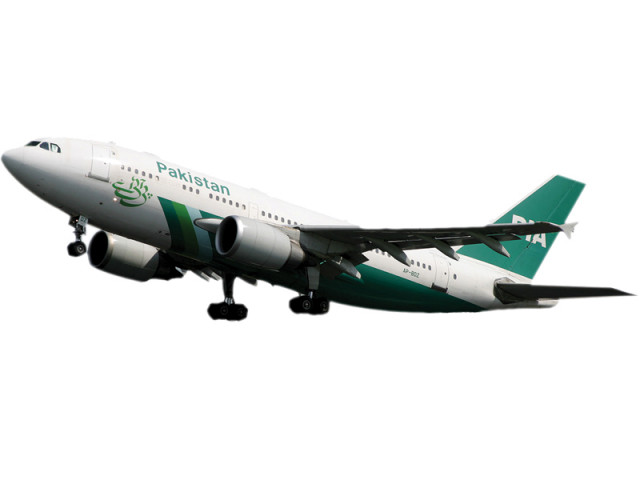On board? ‘Against complete privatisation of PIA’
Azeem says his job is to ‘restructure’ ailing airline, reduce losses

On board? ‘Against complete privatisation of PIA’
As the Pakistan International Airlines’ wet-leased Airbus-320 came to a halt at the Benazir Bhutto International Airport Islamabad, its Jordanian crew tried its best to be courteous.
One airhostess had already drawn laughs from passengers after she struggled to keep pace with safety instructions while the Urdu version was playing.
In his attempt to be friendly, a Pakistani man also asked the airhostess for how long the crew has been in Pakistan? “Three months,” she answered.
“Do you like it here,” the man asked. “Oh, very happy to leave,” came a spontaneous reply. The airhostess realised what had just happened and rushed off. The passenger pretended as if no one heard.
With not enough aircraft in its fleet, PIA has been relying on wet leased jets that come with the leasing company’s crew and are meant to be used for pressing needs only.
Beset with financial troubles, the national flag carrier has not been able to spend money on inducting newer aircraft. This has led to reliance on old Boeing 737s and 747s, which often break down and are economically unfeasible. As a consequence, the airline has seen its market share shrink year after year.
Aiming for a turnaround
But, PIA has now embarked on a major drive to increase the size of its fleet to 39 operational aircraft by the end of 2014 – the first time it will hit the number in several years.
“We can’t do anything without planes,” Shujaat Azeem, Prime Minister’s Adviser on Aviation, told The Express Tribune in an interview. “So all the old planes are being replaced with newer fuel-efficient jets and the number is being increased.”
The plan is to have a mix of B-777s, Airbus-320s and ATR aircraft, he said. “Officials in the previous governments should have thought about the airline’s requirement. That didn’t happen.”
He also wants the airline to slowly phase out 10 A-310s. “We will take a lot of flak from the public over timing and delays but this is something that needs to be done.”
All this is happening when the Privatisation Commission (PC) is moving ahead with its agenda to sell-off the airline and even financial consultants have been shortlisted for the purpose.
“I am against complete privatisation of PIA. The Privatization Commission can do what it wants to do. I am doing what the Prime Minister has asked me to do. I am all for the airline’s revival and restructuring,” Azeem said.
The idea of a strategic investor adding to the airline’s assets is a more suitable alternate, he said. “For example, an investing airline could bring 20 aircraft against a certain share in PIA’s equity. This would be good for our employees too. The investing airline could use PIA’s human resource.”
Azeem regretted that public and media largely ignored the improvement PIA has made over the past year. “Losses have been cut as we have moved aggressively to plug leakages. But, for some reason, only the worst makes the headline.”
PIA’s losses came down 34.7% to Rs20.86 billion in the nine months to September 2014 over the same period last year.
During the period, it relied on five newer narrow-body jets hired on wet lease and another two on dry lease. This helped bring down fuel costs to 50% of revenue — from the previous level of 57%, revealed PIA’s financial statements.
Since Azeem took over, the airline has shut seven loss-incurring international stations including Chicago, Istanbul, Glasgow, Sydney and Bangkok. Offices in cities like London, Paris and Doha have been moved to smaller buildings to save money. Around 137 employees deputed abroad have also been called back.
“We are not hiring anyone either. Vacant posts are being filled with existing employees,” he said.
But the backlog of PIA’s liabilities, which has piled up to a massive Rs288 billion, continues to bog down efforts. And Azeem realises something needs to be done.
“I am asking the government to park the legacy loans somewhere else. We are paying Rs3.5 billion as interest every month,” he said.
The adviser has proposed that the airline’s debt should be swapped for Pakistan Investment Bonds (PIB). If this doesn’t work then the banks, Civil Aviation Authority and other public organisations should be sold shares in the airline.
“Decay of decades cannot be rectified overnight,” Azeem said. “There are a lot of challenges and PIA employees need to realise that this is there last chance to fix the airline.”
THE WRITER IS A STAFF CORRESPONDENT
Published in The Express Tribune, November 3rd, 2014.
Like Business on Facebook, follow @TribuneBiz on Twitter to stay informed and join in the conversation.




1733130350-0/Untitled-design-(76)1733130350-0-208x130.webp)













COMMENTS
Comments are moderated and generally will be posted if they are on-topic and not abusive.
For more information, please see our Comments FAQ